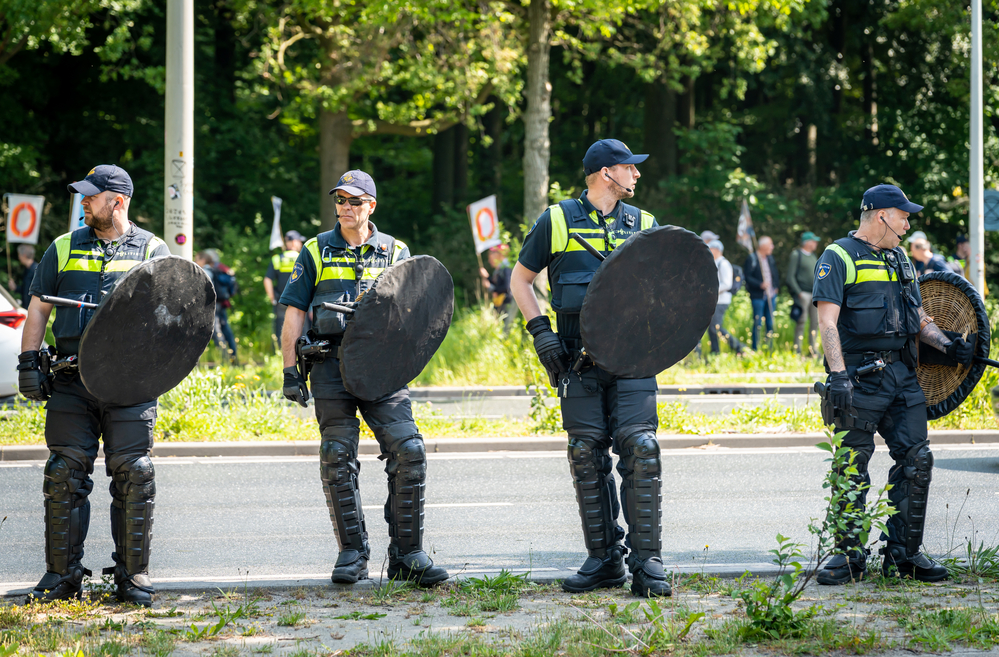Amnesty International has claimed that Dutch police are violating protesters’ rights through intimidation, illegitimate ID checks, and abuse of power.
The international organisation spoke to 50 protestors between September 2020 and November 2022. These included climate protesters, refugee rights and anti-racism protesters, among others.
According to Amnesty International, Dutch police are abusing their power and creating a “chilling effect on the right to freedom of peaceful assembly”.
Unlawful surveillance
Dutch police have been unlawfully surveilling protestors in the Netherlands by demanding peaceful protestors show their identity cards. When they check these IDs, the police keep their information in a database for at least five years.
However, this violates the protestor’s right to privacy according to the 2003 Compulsory Identification Act, which says ID checks can only happen if it is necessary for the police officer’s job.
READ MORE | Girl with the Pearl Earring Vandalised by climate protesters
On top of that, Amnesty International found that the methods used by the police to monitor protestors include “social media monitoring, use of drones at protests, infiltration of group apps, and unannounced home visits”.
Broad discretionary power
Amnesty International is also concerned about the lack of supervision in police actions. This creates a “risk of arbitrariness and discriminatory use of power” such as ethnic profiling.
👉Illegal ID checks
👉 social media monitoring
👉 home visits
📢 The government and the police must stop unlawfully monitoring peaceful #demonstrators.
This position of power has led to a pattern of intimidation by the police, as protestors claim to feel prevented from demonstrating, according to RTL Nieuws.
Police response
Of course, the police have responded. They state that they require information to “make a risk assessment” and ensure the safety of demonstrators and bystanders.
READ MORE | Royal Dutch police must not discriminate against travellers based on appearance, Dutch court rules
The police claim to always consider if they need to gather the information to estimate “how much police capacity (they) must deploy to steer the demonstration in the right direction”. We just hope they don’t need too much “police capacity”.
They also claim that they never intend to intimidate anyone, and if this does happen, it is an “undesirable effect of their actions”.
Where do we go from here?
Amnesty International does have a plan for the police. They say that the police should make protesting easier, protect the protestors, and ask that authorities “take action to end the unlawful monitoring of peaceful protesters”.
They also request that “ID checks should only be carried out if there is a reasonable suspicion of a serious criminal offence”.
READ MORE | Identify me: Dutch police release facial reconstructions of 22 murdered women
The police have addressed this, claiming that one of the reasons to check someone’s ID is to see if they were previously involved in a public disturbance and will again be at a demonstration.
We just hope that peaceful protests remain peaceful.
What is your experience with protesting in the Netherlands? Tell us about your experiences in the comments below.



